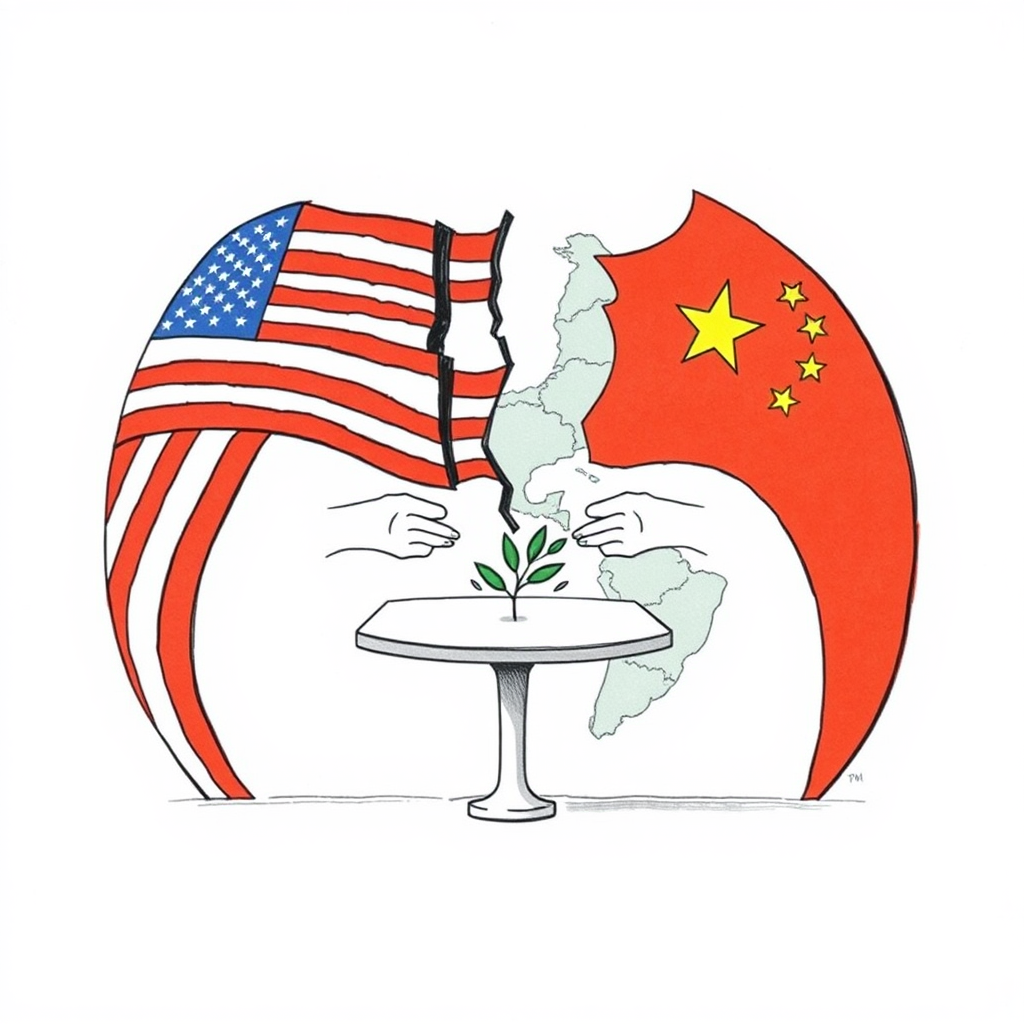US-China Trade Talks Resume Amid Tariff War

Washington – High-ranking U.S. and Chinese officials are set to meet this weekend in Geneva for the first major face-to-face trade talks since President Trump initiated a series of escalating tariffs, signaling a potential, albeit cautious, step toward de-escalation. Treasury Secretary Scott Bessent and U.S. Trade Representative Jamieson Greer will lead the American delegation, engaging with their Chinese counterparts in what the Trump administration describes as the most senior dialogue in months.
The move comes amid growing anxieties within U.S. markets regarding the impact of the tariffs on consumer prices and supply chains. China, the world’s largest exporter and second-largest economy, has borne the brunt of the trade war, responding to initial U.S. tariffs with retaliatory measures. The tariff rates have steadily climbed, currently reaching 145% on U.S. goods entering China and 125% on Chinese goods entering the U.S.
American businesses are already reporting canceled orders, postponed expansion plans, and a general tightening of belts due to the ongoing trade friction. While Trump has previously claimed ongoing negotiations, Beijing has maintained that any tariff reductions must begin with the U.S. lowering its existing rates. Bessent, testifying before a House committee earlier Tuesday, confirmed a lack of formal negotiations until now, but indicated the U.S. anticipates announcing new trade deals with other partners this week.
The Chinese Commerce Ministry confirmed the meeting, stating the decision to engage was made after considering global expectations, Chinese interests, and appeals from U.S. businesses and consumers. However, the ministry spokesperson emphasized China’s unwillingness to compromise its principles or global equity in pursuit of an agreement.
Economists widely predict the costs of the tariffs will be passed on to consumers in the form of higher prices for a range of goods, from automobiles and groceries to housing. These rising prices are already contributing to a growing sense of economic unease among U.S. consumers, and the risk of a recession is increasing.
Wendy Cutler, a former U.S. trade official with the Asia Society Policy Institute, described the meeting as a welcome development. “This is an important opportunity to have initial talks on unwinding some tariffs, mapping out a path forward, and raising concerns,” Cutler said. “We shouldn’t expect quick victories – this will be a process that will take time.”
Beyond the trade discussions, Bessent and Greer are also scheduled to meet with Swiss President Karin Keller-Sutter. Both officials have previously engaged with their Chinese counterparts prior to the implementation of the tariffs, suggesting a foundation for potential dialogue. Greer, in a recent Fox News interview, framed the U.S. strategy as focused on revitalizing the American economy and increasing domestic manufacturing. Bessent also spoke with Chinese Vice Premier He Lifeng in February to discuss the bilateral economic relationship.
This meeting, while a positive sign, arrives at a critical juncture. The prolonged trade war has demonstrably harmed both economies and created significant uncertainty for businesses and consumers. While a swift resolution seems unlikely, the willingness of both sides to engage in direct talks offers a glimmer of hope for a more stable and predictable economic future. The success of these discussions will hinge on a willingness to compromise and address the underlying issues that fueled the trade war in the first place.